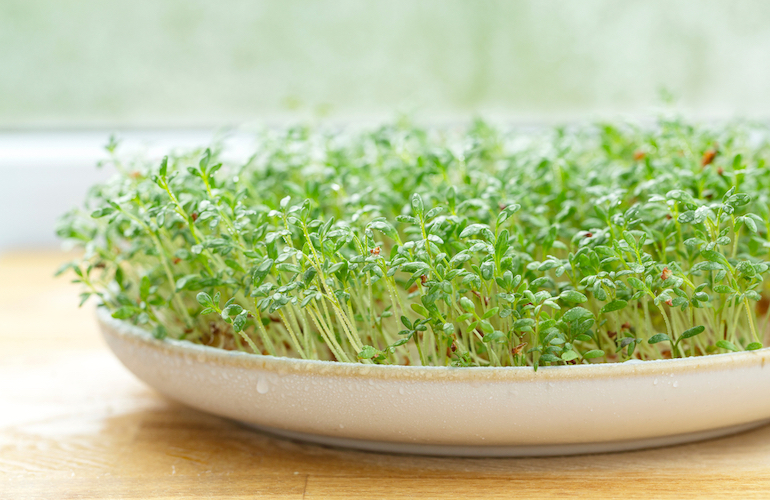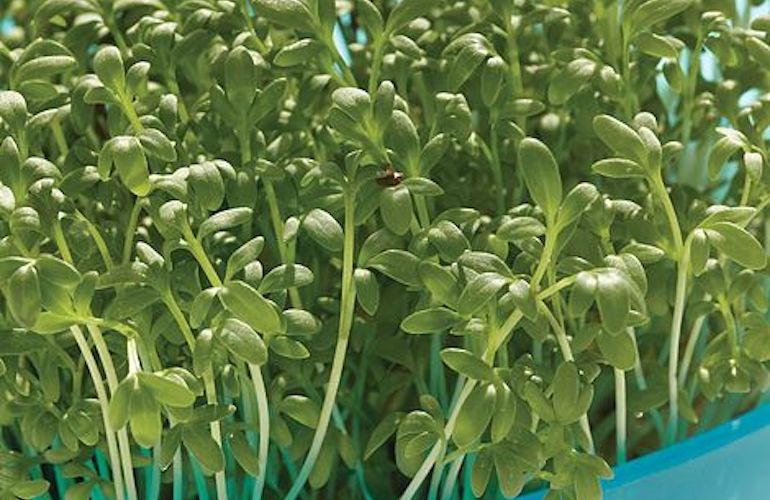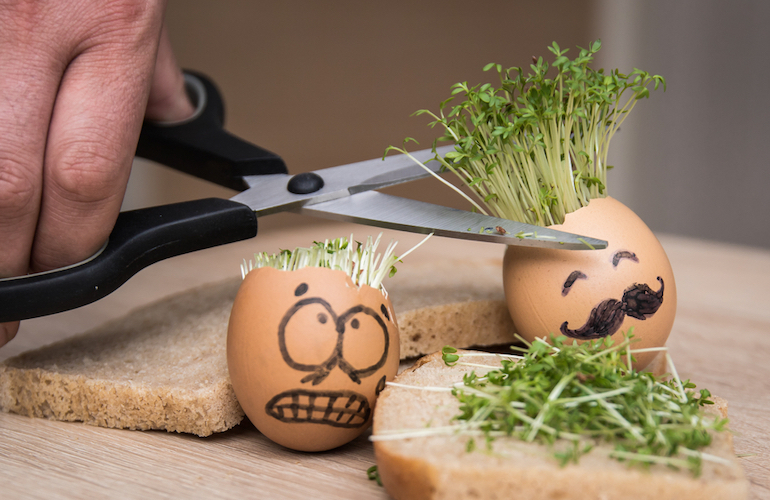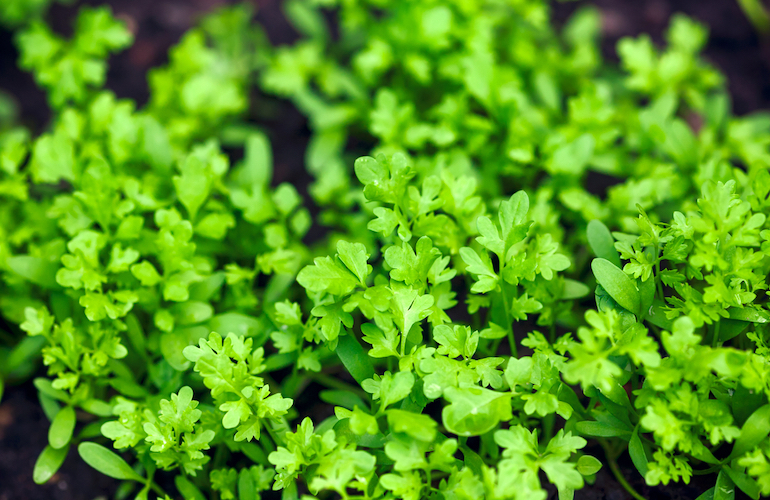How to grow cress

Cress is a quick-cropping plant that can be harvested in as little as 5 days
Image: Shutterstock
You don’t even need a garden to sow hardy annual cress seeds (Lepidium sativum) and enjoy a quick and easy crop of edible leaves at any time of the year. A bright windowsill will suffice!
There are three main types of cress; common, curled and Greek. Imparting a mild mustard flavour to food, cress can be harvested as soon as five days after sowing and until it reaches maturity at about a month old. Here’s everything you need to know about growing this healthy microgreen.
What types of cress can I grow from seed?

Cress can be grown all year round in shallow containers on bright windowsills
Image: Cress 'Extra Curled' from Thompson & Morgan
All varieties of cress are easily grown from seed. Try starting mustard cress or cress ‘Extra Curled’ on the windowsill for super quick germination, and enjoy their mild peppery flavours in sandwiches or salad. And to make cress heads with kids, our special Mr Tickle ‘Extra Curled’ cress seeds are the perfect way to inspire and entertain young gardeners.
Watercress belongs to the same family as cress, but is not closely related. It requires waterlogged soil to grow and has a stronger flavour. If you want to grow a wider variety of windowsill crops, our microgreens kit provides all you need for an all year round supply.
What is the best way to sow cress seeds?

Cress heads are easy to grow and great fun for kids
Image: Shutterstock
For a quick crop at any time of year, simply sprinkle your cress seeds onto the surface of a damp piece of kitchen towel. Gently press the seeds down to ensure they make contact with the moisture, place the towel into a shallow container and cover with cling film to prevent them from drying out. Snip the tops off when they’re around an inch tall and enjoy!
After about a week growing on tissue, your seedlings will start to suffer from lack of nutrients. To produce mature cress plants, you’ll need to sow your cress seeds onto a layer of seed compost. They’ll germinate within a few days if they’re kept moist.
Can cress be grown outdoors?

Let your cress mature outdoors to harvest larger leaves with loads of flavour
Image: Shutterstock
Cress is a hardy annual, and can be successfully grown outdoors. Sow your cress seeds directly into a shallow rill in the vegetable patch or raised bed. You can also sow them into window boxes and patio containers if you’re short on garden space.
Lightly cover the cress seeds with soil and water well. If you thin the seedlings out when they reach an inch tall it will reduce competition for nutrients and light, producing stronger results. Be sure to water your maturing plants regularly to prevent them from bolting in warm weather and harvest your cress leaves regularly as they mature.
When is my cress ready to eat?

Cress is a popular addition to egg sandwiches
Image: Shutterstock
Both the leaves and flowers of cress are edible, so you can cut and eat them as soon as your seedlings reach an inch tall and until they mature.
You’ll know your outdoor plants have reached maturity when they’re around six inches tall and start to produce flowers.
Quick guide to growing your own cress
- Sprinkle your cress seeds over damp tissue
- Cover with cling film and keep moist
- Cress seeds can germinate within 24hrs
- Within 5 to 7 days your cress will be ready to snip into sandwiches
- To grow outdoors, sow cress seeds onto damp compost and allow them to grow until they reach full size
We hope this has given you plenty of tips on how to grow your own cress indoors and out. We’d love to see how you get on - please share images of your microgreens over on our Facebook page, or use the Instagram hashtag #YourTMGarden.
Sign Up For Exclusive Special Offers




© 2025 Thompson & Morgan. All rights reserved. A division of Branded Garden Products Limited.
Sign up for exclusive offers!



